Young at Heart
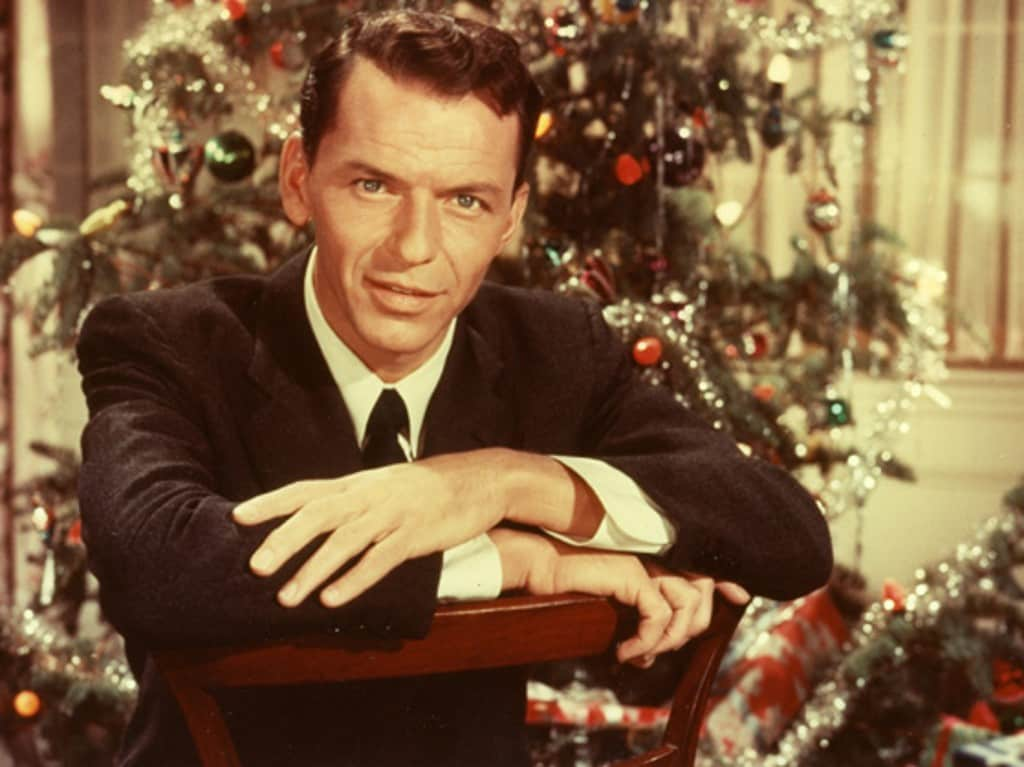
Brief Synopsis
Cast & Crew
Gordon Douglas
Doris Day
Frank Sinatra
Gig Young
Ethel Barrymore
Dorothy Malone
Film Details
Technical Specs

Synopsis
In Connecticut, widowed music professor Gregory Tuttle has three daughters, who share his love of chamber music. Fran, his oldest, becomes engaged after only seven dates to the chubby but successful Robert Neary. Amy, who is ambivalent about her admirer, the soft-spoken Ernest Nichols, is not expecting to marry soon. The youngest daughter Laurie has no suitor and muses that the trouble with most marriages is that there are "not enough laughs." She jokingly offers Amy a "double or nothing" proposal, in which they either have a double wedding or remain spinsters together. Later, Alex Burke, a confident New York composer and dog lover, introduces himself to Gregory as the son of an old friend, and finagles an invitation to room at the Tuttle house while he composes a musical he has been commissioned to write for Broadway. Alex's take-charge personality charms all three Tuttle sisters, but he falls in love with Laurie, and gives her a bracelet during an outing at the beach. Soon after, Barney Sloan, a music arranger, comes to town to work with Alex on the musical and despite Barney's sullen manners, Laurie and Aunt Jessie, Gregory's spinster sister, warm up to him. After listening to Barney enumerate his misfortunes and complain that fate is against him, Laurie feels challenged to help him improve his attitude. She also recognizes his great, untapped talent and urges him to complete a song he has partially written. Although he hides his true feelings behind cynical jests, Barney is touched by her efforts. Later, when Alex proposes to Laurie, she accepts by saying "it might be fun" and they announce their engagement at Gregory's birthday party. Surprised by the news, Fran decides to move up the date of her own wedding. Amy, who is secretly infatuated with Alex, becomes distressed, but Laurie misunderstands the reason for her tears. Afterward, the disappointed Barney avoids the family, but Laurie seeks him out on the day of her wedding. After admitting that he loves her, Barney also intimates that Amy is in love with Alex. Although she is reluctant to believe him at first, Laurie soon realizes that Barney is right about Amy. Thinking that she is doing the best thing for everyone, Laurie sends a cryptic telegram announcing that she has eloped with Barney, which is delivered as friends and family gather for the ceremony. Ernie takes charge, realizing that the family is paralyzed by the news, and announces to the guests that the wedding has been called off. Several months later, Barney and Laurie are living frugally in New York City on the money Barney makes performing in piano bars. Although he has published a few unsuccessful songs, Laurie urges him to finish the song he has worked on since they met. Lacking the money for airfare, Barney misses out on a potentially lucrative opportunity to play with a band in South America. Despite their financial problems and Barney's depression, Laurie has realized that she really loves him, even after he jealously demands that she pawn the bracelet Alex gave her. At Christmas, Barney buys back Laurie's bracelet and they return to the Tuttle home for the holiday. Alex, whose musical has become a success, also joins the family. When they have a moment alone, Laurie returns the bracelet to Alex, but Barney, watching them, thinks Laurie still loves him. Alex has to catch a train, so Barney drives him to the station in Bob's car, dropping Bob off at the drugstore on the way. While returning to the Tuttle house alone through a snowstorm, the depressed Barney intentionally crashes the automobile. Meanwhile, Amy, now engaged to Ernie, confides to Laurie that she once loved Alex, but her feelings changed when she saw how calmly Ernie took care of the family after Laurie eloped. As Laurie laments that she can't make Barney believe she loves him, the Tuttles are informed about the automobile accident involving Bob's car. Believing Bob has been seriously injured, Fran grieves that she has taken her husband for granted. However, at the hospital, they learn that it is Barney who is near death. Weeping, Laurie tells the unconscious Barney that she is going to have his baby. Although the doctor has little hope for him, Barney is taken to the operating room. Over a year later, while he, Laurie and their baby son celebrate Easter at the Tuttle home, the recovered Barney plays his completed song for the family.

Director
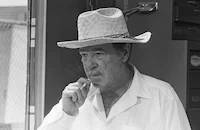
Gordon Douglas
Cast

Doris Day
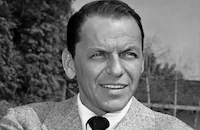
Frank Sinatra

Gig Young

Ethel Barrymore

Dorothy Malone

Robert Keith
Elisabeth Fraser

Alan Hale Jr.

Lonny Chapman
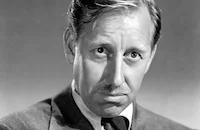
Frank Ferguson

Marjorie Bennett
Celeste Bryant
Billy Mclean

Barbara Pepper
Robin Raymond

Tito Vuolo
Grazia Narciso
Ivan Browning
John Maxwell
Joe Forte
Cliff Ferre
Harte Wayne
Jay Lawrence
Wanda Barbour
Jack Perrin
Beth Hartman
Tony Taylor
Steve Wootten
Edward Mcnally
Crew
Al Alleborn
Fred Applegate
Harold Arlen
Gordon Bau
John Beckman
Henry Blanke
Gibson Carter
Lenore Coffee
Julius J. Epstein
Sammy Fain
David Forrest
George Gershwin
Ira Gershwin
Mack Gordon
Ray Heindorf
Charles Henderson
Leslie G. Hewitt
Floyd Huddleston
Philip Jefferies
H. F. Koenekamp
Carolyn Leigh
Stanely Martin
Ted Mccord
Felix Mendelssohn
Johnny Mercer
Liam O'brien
Don Pippin
Cole Porter
Johnny Richards
C. A. Riggs
Al Rinker
Ed Scheid
Howard Shoup
James Van Heusen
William Wallace
Paul Francis Webster
William Ziegler

Photo Collections
Videos
Movie Clip




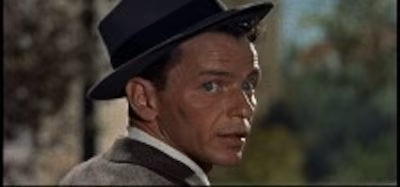


Trailer
Film Details
Technical Specs

Articles
Young At Heart - Young at Heart
Sinatra may have been cockier than usual, since his career was on the upswing after several years of unhappy events including the breakup of his marriage to Ava Gardner, health problems with his singing voice, and the end of his music contracts with MCA and Columbia Records as his audience and album sales declined. His turnaround began with an Academy Award as Best Supporting Actor for the 1953 army picture From Here to Eternity. Then a new contract with Capitol revitalized his recording career, pairing him with great arrangers like Nelson Riddle and letting him develop a fresh image that combined aspects of the swinger and the outsider, reflected in engrossing numbers like "One for My Baby," perhaps the strongest piece in the Young at Heart score. Feeling back at the top of his game, Sinatra followed the banning of Melcher with the firing of Young at Heart cinematographer Charles Lang, whose meticulous setups didn't jibe with his loose, from-the-hip style; the replacement was Ted D. McCord, also a first-rate talent. Sinatra was definitely feeling his oats, but his meddling did no harm to the picture, which performed well at the box office.
Young at Heart is a remake of Four Daughters, the 1938 drama by Michael Curtiz that marked John Garfield's screen debut; adapted from Sister Act by Fannie Hurst, it was followed by the sequels Four Wives and Four Mothers in 1939 and 1941. All of the pictures center on a family headed by a music-loving patriarch (played by Claude Rains in the '30s and '40s films) and his musically inclined offspring, who get into various scrapes, usually of a romantic nature. Young at Heart lowers the daughter count to three but retains the basic story line of its predecessor. Day plays Laurie, the youngest daughter, and Gig Young plays Alex Burke, a likable composer who comes for an extended visit to the sisters' dad, eventually winning Laurie's heart. Sinatra plays Barney Sloan, a cynical songwriter hired by Alex to do arrangements for the Broadway show he's composing. Barney is constantly lamenting the way fate has tricked and cheated him at every stage of his life, and Laurie takes on the mission of raising his spirits and improving his outlook. When she and Alex announce that they're engaged, oldest sister Fran is delighted but middle sister Amy is devastated, since she's been nurturing a secret crush on the composer. Barney is likewise disappointed that Laurie is marrying another man. Laurie soon realizes that Amy and Barney now have broken hearts because of her, so she runs off with Barney on her wedding day, settling down with him in New York, where he tries without success to build a musical career. During a holiday visit to Laurie's family, Barney gets the false idea that she and Alex still have eyes for each other, and sets out to kill himself by driving his car blindly through a raging snowstorm.
In the 1938 film, with Garfield in the part, Barney perishes in the resulting crash; but in Young at Heart he makes a slow recovery that also eases his long-time psychological woes, justifying the lyrics we hear ("Fairy tales can come true/It can happen to you....") as the story closes. This big change in the ending was prompted by nothing more complicated than Sinatra's refusal to make the picture if Barney died. Day considered this a very bad decision, saying later that "there was an inevitability about that character's death that would have given more dimension to Sinatra's performance" and "enhanced the film." The revised conclusion works reasonably well, however, if you think of Young at Heart as a cousin of the following year's great melodrama All That Heaven Allows, where the near-death of a man similarly strengthens the bond between him and the heroine. In any case, Sinatra's sensitive acting makes the denouement plausible and touching.
Along with Suddenly, an assassination thriller released two months earlier, Young at Heart propelled Sinatra into several more first-rate pictures including Otto Preminger's The Man with the Golden Arm in 1955, Vincente Minnelli's Some Came Running in 1958, and John Frankenheimer's The Manchurian Candidate in 1962. It also paved the way for Day's major dramatic roles in Love Me or Leave Me (1955), Alfred Hitchcock's The Man Who Knew Too Much (1956), and Midnight Lace (1960).
Although director Gordon Douglas didn't muster the cinematic energy he'd lavished on the creature feature Them! earlier in the year, his work on Young at Heart pleased Sinatra enough to spark no fewer than four collaborations with him in the 1960s, from Robin and the Seven Hoods (1964) to The Detective (1968) and the twin thrillers Tony Rome (1967) and Lady in Cement (1968). The good grosses and largely good reviews of Young at Heart also made it a creditable outing for Young as the composer, Dorothy Malone as the eldest sister, Elisabeth Fraser as the middle one, and Ethel Barrymore as an elderly aunt, the next-to-last movie character she played before her death. And every song is a winner, especially "Just One of Those Things" and "Ready, Willing, and Able" from Sinatra, "There's a Rising Moon for Every Falling Star" from Day, and "You, My Love" from both together. Plus the infectious title tune, of course, which you'll be humming long after the end credits are over.
Producer: Henry Blanke
Director: Gordon Douglas
Screenplay: Julius J. Epstein, Lenore Coffee, based on Sister Act by Fannie Hurst
Cinematographer: Ted D. McCord
Film Editing: William H. Ziegler
Art Direction: John Beckman
With: Doris Day (Laurie Tuttle), Frank Sinatra (Barney Sloan), Gig Young (Alex Burke), Ethel Barrymore (Aunt Jessie Tuttle), Dorothy Malone (Fran Tuttle), Robert Keith (Gregory Tuttle), Elisabeth Fraser (Amy Tuttle), Alan Hale, Jr. (Robert Neary), Lonny Chapman (Ernest Nichols), Frank Ferguson (Bartell).
C-117m. Closed captioning.
by David Sterritt

Young At Heart - Young at Heart
Quotes
Trivia
Notes
Warner Bros. planned to make a Lou Edelman-produced musical version of the studio's 1938 production, Four Daughters (see AFI Catalog of Feature Films, 1931-40) as early as 1952, according to a January 1952 Daily Variety news item. The 1938 film, like Young at Heart, was based on the Fannie Hurst short story, "Sister Act." Frank Davis was assigned to write the screenplay, according to a May 1954 Los Angeles Examiner article, but his contribution to the final film has not been determined; only Julius J. Epstein and Lenore Coffee, who wrote the screenplay for Four Daughters, are credited with the screenplay for Young at Heart. Henry Blanke, who produced Four Daughters, also produced Young at Heart. Another veteran of the 1938 film was Al Alleborn, who served as unit manager on Four Daughters but acted as the assistant director on Young at Heart. An October 1954 Hollywood Reporter news item added Billy Mauch to the cast, but his appearance in the film has not been confirmed. The above sources also reported that the film's title was taken from Frank Sinatra's then popular song, "Young at Heart." As the Motion Picture Herald review states, the title is a misnomer, "because the accent is on the trials of youth and not on those of the young at heart."
A September 1954 Hollywood Reporter news item reported that actress Doris Day recorded four numbers from the film for the Columbia Records label. According to an undated Daily Variety news item from the 1980s found in the AMPAS Library file for the film, Martin Melcher, who was the husband of Day and president of Arwin Productions, wanted to shoot a new ending for the film and re-release it under a new title, but the venture never came to fruition. Warner Bros.' 1938 film, Four Daughters was directed by Michael Curtiz and starred Claude Rains, John Garfield and Priscilla Lane. In the earlier version, the piano player did not survive the auto accident.

Miscellaneous Notes
Released in United States 1998
Released in United States Winter January 1955
This was a loose remake of 1938's "Four Daughters."
Released in United States 1998 (Shown in New York City (Walter Reade) as part of program "A Salute to Sinatra" August 21 - September 8, 1998.)
Released in United States Winter January 1955














